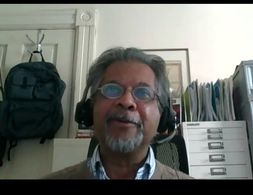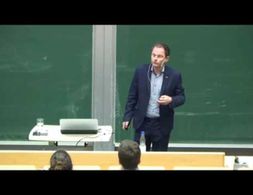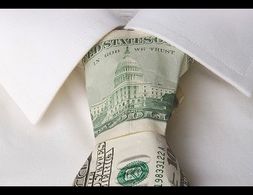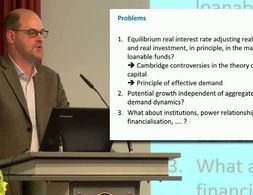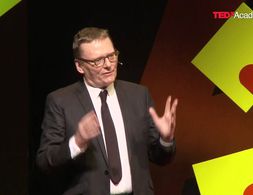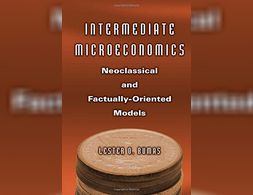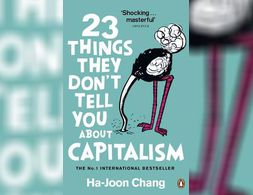✕
300 results
Economics should schematically explain the key elements and main strands of this core part of social life: the actual workings of our economies. This book argues that orthodox, modern neoclassical economics does not fulfil this core task. Standard economics models do not address the real functioning of our market economies, but rather an imagined economy.
The global financial crisis (GFC) led to increasing distrust in economic research and the economics profession, in the process of which the current state of economics and economic education in particular were heavily criticized. Against this background we conducted a study with undergraduate students of economics in order to capture their view of economic education.
Economics is extremely sick. It is so locked in its past that nearly all of its introductory textbooks are modelled on one that appeared in 1948. The discipline cannot continue in its autistic state much longer.
Adam Smith's The Wealth of Nations provided the first, most influential and lasting explanation of the workings of modern economics. But with his focus on "the market" as the best mechanism for producing and distributing the necessities of life, Smith's concepts only told part of the story, leading to flawed economic models that devalue activities that fall outside of the market's parameters of buying and selling.
Photo by Anne Nygård on Unsplash In this course you will learn all of the major principles of microeconomics normally taught in a quarter or semester course to college undergraduates or MBA students Perhaps more importantly you will also learn how to apply these principles to a wide variety of …
In her short contribution, the author questions how the value of goods and services is shaped in current neoclassical teaching. She criticizes the principle of pricing based on marginal income. She discusses what can be called wealth generating, what kind of wealth we need and points out a lack of a value theory.
This lecture was held in the context of the a two day conference called Which pluralism for thinking about how to achieve a more sustainable and resilient economy The practices institutions and system logics of today s economy are not suitable for appropriately addressing fundamental human needs The climate crisis …
The Great Recession 2.0 is unfolding before our very eyes. It is still in its early phase. But dynamics have been set in motion that are not easily stopped, or even slowed. If the virus effect were resolved by early summer—as some politicians wishfully believe—the economic dynamics set in motion would still continue. The US and global economies have been seriously ‘wounded’ and will not recover easily or soon. Those who believe it will be a ‘V-shape’ recovery are deluding themselves. Economists among them should know better but are among the most confused. They only need to look at historical parallels to convince themselves otherwise.
Once in a while the world astonishes itself. Anxious incredulity replaces intellectual torpor and a puzzled public strains its antennae in every possible direction, desperately seeking explanations for the causes and nature of what just hit it. 2008 was such a moment. Not only did the financial system collapse, and send the real economy into a tailspin, but it also revealed the great gulf separating economics from a very real capitalism.
This book introduces 40 critical pointers for those who wish to see the theory in a broader, more realistic context. The material is suitable for introductory and intermediate courses and can be included selectively by students for additional reading or in lectures or tutorials as discussion points. "Students of mainstream economics need a guide like this to help them understand the underlying assumptions, limitations and inbuilt biases of what they are studying. It helps them open their eyes to a broader view of how real economies work."
The novel coronavirus (Covid-19) is rapidly spreading around the world. The real economy is simultaneously hit by a supply shock and a demand shock by the spread of coronavirus. Such a twin shock is a rare phenomenon in recent economic history.
Croatia adopted the euro as its currency on 1 January 2023, becoming the 20th member state of the eurozone. In this teaching pack, students learn what it entails to join the eurozone and discuss what its effects might be. In this way, the case helps students connect theoretical insights about monetary unions with real world knowledge and economic developments in the news.
What is money and how is it used? After answering these questions, Dirk Bezemer analyses how finance can be dysfunctional for the real economy.
Caring activities are one central element of feminist economists' analysis – also since in particular unremunerated work is a blind spot in mainstream economics and most other economic paradigms. Those focus on the market sphere: activities are considered as productive and as real labour if they are remunerated and market-intermediated. Goods and services are considered as labour if they create a value which can be traded on the market. Feminist Economics remarks that this perspective creates certain dichotomies and consequent devaluations: unproductive – productive; private – public; unpaid – remunerated OR paid less – well paid; female – male; soft work – hard work; caring – rationality.
Markets are the focus in modern economics: when they work, when they don’t and what we can or can’t do about it. There are many ways to study markets and how we do so will inevitably affect our conclusions about them, including policy recommendations which can influence governments and other major organisations. Pluralism can be a vital corrective to enacting real policies based on only one perspective and a plethora of approaches provide alternatives to the canonical view. Although they have differing implications, these approaches share the idea that we should take a historical approach, analysing markets on a case-by-case basis; and they share a faith in the power of both individuals and collectives to overcome the problems encountered when organising economic activity.
This teaching pack focuses on the practice and real-world activities of central banks. It assumes students have a grasp of basic macroeconomic concepts already, and is therefore most suitable to be used at the end of introductory macro courses, or in more advanced macro or monetary economics courses.
This book arose from our conviction that the NNS-DSGE approach to the analysis of aggregate market outcomes is fundamentally flawed. The practice of overcoming the SMD result by recurring to a fictitious RA leads to insurmountable methodological problems and lies at the root of DSGE models’ failure to satisfactorily explain real world features.
After completing the module, participants should be able to have general overview on the theory of commons. They can differentiate between neoclassical, new institutional and social/critical commons theory and can use these theories to assess real life common-pool resource management and commoning pratices.
In this radio interview, Andrew Sayer first outlines some features of neoliberalism and policies that are associated with it. Then a difference between wealth creation via investment and wealth extraction by means of lending money to those deprived of it or by acquiring property such as real estate or financial assets on the secondary market as absentee owner is established. In this context reference is made to J.A. Hobson's concept of "improperty." Finally, there are some words on the power dynamics associated with capitalism and its relation to climate change.
Eckhard Hein criticises the mainstream's view of secular stagnation as the result of a negative real equilibrium interest rate. Arguing in a Keynesian spirit with particular reference to Steindl, secular stagnation is considered to be a result of shift in the functional income distribution, and oligopolistic organisation of industries, leading to excess capacity and reluctance to invest. This acts as a drag on effective demand and results in secular stagnation. Distributional policies and public investment can, however, overcome stagnation its tendencies.
Irene van Staveren, professor of pluralist development economics, presents her pluralist teaching method for the introductory level. Based on her textbook “Economics After the Crisis: An Introduction to Economics from a Pluralist and Global Perspective” she suggests to focus on real-world problems and pari passu apply economic theories such as Social economics, Institutional economics, Post-Keynesian economics as well as Neoclassical economics without wasting time to single out the latter. Besides pointing out advantages of such a pluralist method Irene illustrates her approach based on interesting topics such as growth or feminist economics.
Anwar Shaikh explores alternative economic explanations, emphasizing 'real competition' theory and the role of imperfections in economic patterns.
In order to describe the global structure of the monetary and financial system and its effects on the global economy, most economics textbooks rely on unappropriated theories that provide nothing but outdated descriptions. In this talk, key speakers in economics, economic history and banking try to make this complex system a little more understandable by relying on real-world insights.
James Robinson gives in this talk a short introduction into the theory and ideas of his popular book "Why Nations Fail" which was published together with D. Acemoglu in 2012. With many real-life examples he gives a lively description on the fundamentals for economic success from an institutionalist view. According to Robinson, the nature of institutions is a crucial factor for economic success. Whether institutions are inclusive (such as in prosperous economies) or extractive (poor economies) stems from the nation's political process and the distribution of political power.
Global Value Chains (GVCs) started to play an increasing and key role in the global economy from the 1990s on. The market mechanism in GVCs supports industrialisation in the Global South and under certain conditions product and process upgrading. But GVCs do not lead to the catching-up of countries in the sense of them approaching real GDP per capita levels comparable with developed countries. These arguments are supported by a critical interpretation of the traditional trade theory, the New Trade Theory and specific approaches to explain GVCs, especially different governance structures and power relationships. Several case studies support these arguments. For catching-up, countries need comprehensive horizontal and vertical industrial policy and policies for social coherence. The small number of countries which managed to catch up did this in different variations.
Sporting events can be seen as controlled, real-world, miniature laboratory environments, approaching the idea of “holding other things equal” when exploring the implications of decisions, incentives, and constraints in a competitive setting (Goff and Tollison 1990, Torgler 2009). Thus, a growing number of studies have used sports data to study decision-making questions that have guided behavioral economics literature.
This course provides an introduction to the ILO’s Tripartite Declaration of Principles concerning Multinational Enterprises and Social Policy (MNE Declaration). The course uses real cases related to labour and employment issues as examples of how the MNE Declaration is used in practice or as guidance.
Economic theory must distinguish between publicly owned and privately owned property if it is to account for the effect of institutions on the behavior of individuals. Careful study of the theories of Marxists and the real-world experience in the Soviet economy offer important lessons and insight for economic modeling and the ongoing development of theory. In this course, Marxist/Leninist theory and Soviet reality will be studied with an open mind, and with the goal of taking lessons from the case study. To what extent was the Soviet economy an accurate expression of Marxist theory? If Marxism were tried somewhere else would the results be the same?
Part I: Basic Economic Problems Is Economics a Science? Is It Useful? (Lawrence Boland, Ian Parker) Is There Such a Thing as a Free Market? (William Watson, Robert Prasch) Part II: Consumers and Firms Is Homo Economicus an Appropriate Representation of Real-World Consumers? (Joseph Persky, Morris Altman) Is the Consumer Sovereign?
This is the first intermediate microeconomics textbook to offer both a theoretical and real-world grounding in the subject. Relying on simple algebraic equations, and developed over years of classroom testing, it covers factually oriented models in addition to the neoclassical paradigm, and goes beyond theoretical analysis to consider practical realities.
'This Cambridge professor delights in paradox. And myth-busting . . . he does this with charm and a desire to see how things work in the real world' Guardian, 'In Praise of Ha-Joon Chang' In this revelatory book, Ha-Joon Chang destroys the biggest myths of our times and shows us the truth about how the world really works, including- there's no such thing as a free market.
The complex economic problems of the 21st century require a pluralist, real-world oriented and innovative discipline of economics that is capable of addressing and teaching these issues to students. This volume is a state-of-the-art compilation of diverse, innovative and international perspectives on the rationales for and pathways towards pluralist economics teaching.
We use cookies on our website. Click on Accept to help us to make Exploring Economics constantly better!







